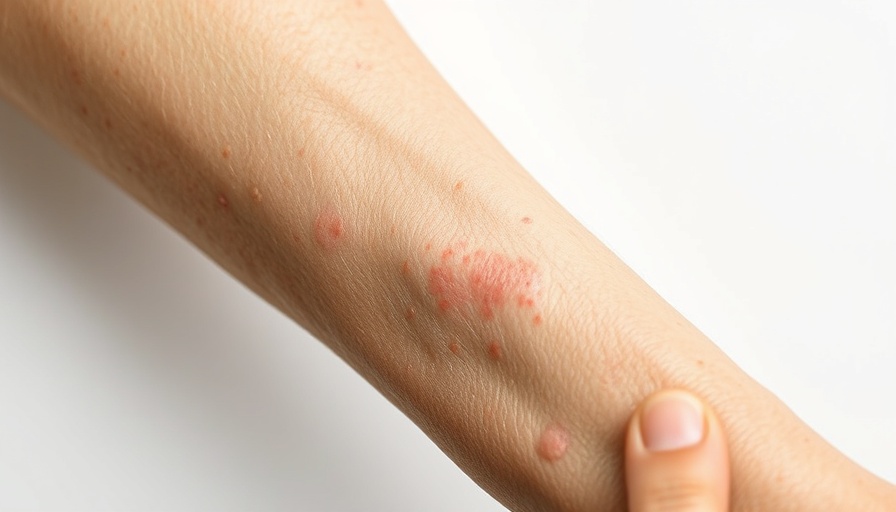
Unlocking Skin Health: The Benefits of a Plant-Rich Diet for Psoriasis Relief
Psoriasis, a chronic inflammatory skin condition, affects millions worldwide and can severely impact emotional and physical well-being. Recent studies are shedding light on how dietary choices, particularly those rich in plant-based foods, can significantly influence the severity of this condition. A diet low in saturated fats and high in plant density not only supports overall health but is increasingly adopted by those looking to manage their psoriasis effectively.
The Link Between Diet and Skin Health
Research has indicated a clear connection between dietary patterns and skin conditions, particularly inflammatory disorders like psoriasis. The human skin is sensitive to both intrinsic factors, such as genetics, and extrinsic ones, including diet. Studies show that diets rich in vegetables, fruits, and whole grains can modulate inflammation—one of the underlying causes of psoriasis. A plant-rich diet not only provides essential vitamins and antioxidants but minimizes the intake of pro-inflammatory foods.
Understanding the Gut-Skin Axis
The gut-skin axis is a fascinating area of research highlighting how gut health correlates with skin conditions. A balanced diet that includes ample fiber from fruits and vegetables is believed to promote a healthy gut microbiome. This microbiome, in turn, can enhance skin barrier function and reduce systemic inflammation, thereby potentially alleviating psoriasis symptoms.
For example, specific plant foods promote the growth of beneficial gut bacteria like Bifidobacterium and Lactobacillus, known for their anti-inflammatory properties. A study published in the International Journal of Molecular Science emphasizes this connection: the consumption of high-fiber plant-based diets fosters a gut microbiome that mitigates the inflammatory processes involved in psoriasis.
Positive Case Studies: Real-Life Transformations
Various case studies document significant improvements in psoriasis severity through dietary modifications. A survey conducted with psoriasis patients revealed that 86% who adopted vegan or plant-forward diets reported noteworthy improvements in their skin condition. This aligns with findings from a controlled trial demonstrating a 48% reduction in psoriasis severity scores (PASI score) among patients who implemented a high-vegetable, low-energy diet combined with physical exercise.
Implementing Dietary Changes: Practical Tips
Transitioning to a more plant-based diet doesn't necessitate a full vegan commitment; rather, it's about making incremental changes. Here are some actionable steps to consider:
- Prioritize Plant Foods: Aim to fill your plate with at least 90% plant-based foods. Incorporate a variety of colorful vegetables and fruits.
- Choose Whole Grains: Opt for brown rice, quinoa, and whole oats instead of refined grains.
- Limit Animal Products: Reduce red meat consumption and incorporate lean proteins like legumes, nuts, and tofu instead.
- Hydrate Wisely: Drink plenty of water and consider herbal teas that support digestion.
Common Misconceptions: Understanding Plant-Based Nutrition
Despite the surge in plant-based eating, some misconceptions persist. Many believe that following a plant-rich diet may lead to nutritional deficiencies. However, well-planned plant-based eating can deliver all necessary nutrients, including proteins, vitamins, and minerals essential for skin health. Balance and variety are key components to achieving both a satisfying and nourishing diet.
Consultation is Key: Work With Health Professionals
Before making drastic dietary changes, it’s advisable to consult healthcare providers or a registered dietitian familiar with the complexities of psoriasis management. They can guide you on how to safely incorporate plant-rich foods while ensuring you're meeting your nutritional requirements.
Conclusion: A Potential Path to Relief
Switching to a plant-rich, low-saturated-fat diet represents a promising avenue for individuals dealing with psoriasis. This approach assists in reducing overall inflammation, promoting gut health, and potentially improving skin condition. While individual responses may vary, extensive research supports the benefits of a plant-based diet. Increased awareness and proactive dietary management might just be the keys to unlocking a healthier, happier skin.
 Add Row
Add Row  Add
Add 




Write A Comment